REGREEN: an european project to favour nature-based solutions
REGREEN promotes urban livability, through fostering nature-based solutions in Europe and China using evidence-based tools and improved urban governance accelerating the transition towards equitable, green and healthy cities.
REGREEN is an european research programme led by Aarhus University in Denmark. This programme consists of more than 60 partners originating from various universities, urban and land use planning institutes located all over Europe and China (the two French partners are l’Agence régionale de biodiversité d’Ile-de-France et le Muséum national d’histoire naturelle through Vigie-Nature École). Based on the observation that a) urban systems are facing major socio-environmental challenges while b) natural ecosystems degradation is steadily making cities more and more vulnerable, REGREEN aims to support works and programmes that promote the implementation of nature-based solutions. The question is now to understand and promote cities' renaturation, in a concerted process that encompasses biodiversity, city population and urban spaces governance. Paris and the Île-de-France region are one of the three study sites planned for this project, alongside Aarhus (Denmark) and Velika Gorica (Croatia).
REGREEN main guidelines focus on:
- The improvement of knowledge regarding nature-based solutions;
- The development of mapmaking and modelling tools;
- The deployment of marketplaces and employments related to nature-based solutions;
- The investigation of the various connections between well-being, health and nature in cities. The Muséum national d’histoire naturelle, through Vigie-Nature École, is notably focusing its efforts on this last line, with a working group promoting “Nature education, awareness and participation”.
Currently, 15 schools (classes from kindergarten to high school) are participating in the REGREEN project in the Île-de-France region. Their participation involves carrying out various Vigie-Nature École protocols between 2021 and 2022 in order to establish a diagnosis of the state of biodiversity in their schools, and then to collectively propose solutions to encourage spaces and facilities that will increase biodiversity and naturalise the schools in the medium and long term. The support of these activities by the Muséum and the Vigie-Nature École team encourages new governance and educational dynamics in relation to nature, and facilitates the implementation of new activities for teachers, students and eco-delegates.
 |
This project has received funding from the European Union’s Horizon 2020 research and innovation programme under the grant agreement No 821016 |

